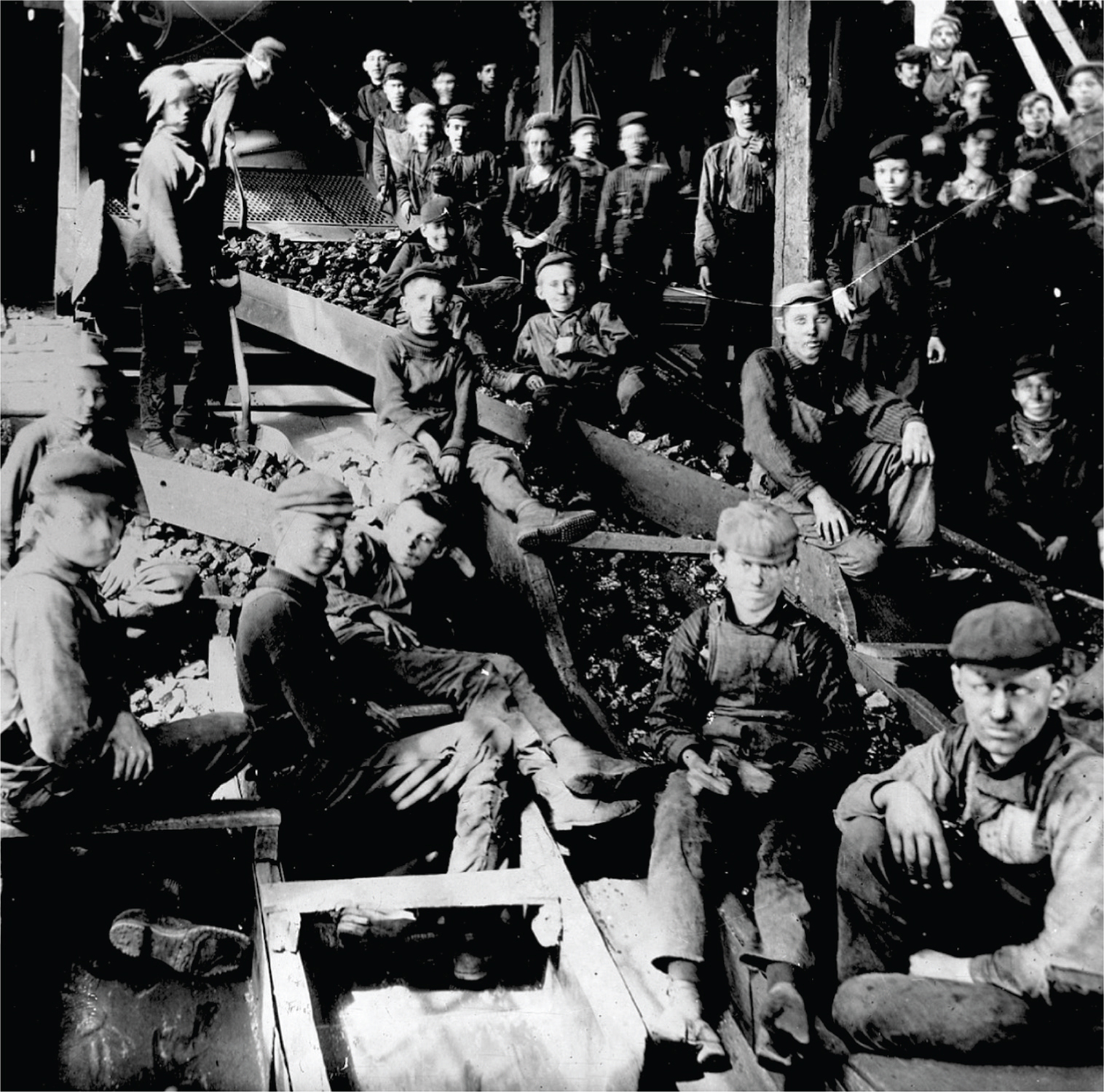The American Promise:
Printed Page 592
The American Promise Value
Edition: Printed Page 557
The Square Deal
At age forty-
Once president, Roosevelt would harness his explosive energy to strengthen the power of the federal government, putting business on notice that it could no longer count on a laissez-
Just five months after Roosevelt took office, Wall Street rocked with the news that the government had filed an antitrust suit against Northern Securities. As one newspaper editor sarcastically observed, “Wall Street is paralyzed at the thought that a President of the United States would sink so low as to try to enforce the law.” Roosevelt’s thunderbolt put Wall Street on notice that the new president expected to be treated as an equal and was willing to use government as a weapon to curb business excesses. Roosevelt later recounted how Morgan had come to him, one Harvard man to another, to suggest that “if we have done anything wrong, send your man to my man and they can fix it up.” Roosevelt’s attorney general responded, “We don’t want to fix it up, we want to stop it.” Roosevelt chortled over the exchange, noting “this is a most illuminating illustration of the Wall Street point of view. Mr. Morgan could not help regarding me as a big rival operator.” And indeed he was. Perhaps sensing the new mood, the Supreme Court, in a significant turnaround, upheld the Sherman Act and called for the dissolution of Northern Securities in 1904.
“Hurrah for Teddy the Trustbuster,” cheered the papers. Roosevelt went on to use the Sherman Act against forty-
In his handling of the anthracite coal strike in 1902, Roosevelt again demonstrated his willingness to assert the authority of the presidency, this time to mediate between labor and management. In May, 147,000 coal miners in Pennsylvania went on strike. The United Mine Workers (UMW) demanded a reduction in the workday from twelve to ten hours, an equitable system of weighing each miner’s output, and a 10 percent wage increase, along with recognition of the union. When asked about the appalling conditions in the mines that led to the strike, George Baer, the mine operators’ spokesman, scoffed, “The miners don’t suffer, why they can’t even speak English.”
Realist author Stephen Crane had already investigated life “In the Depths of a Coal Mine.” There he found a vicious circle. Children worked as “breaker boys” separating out pieces of slate from streams of coal speeding by on conveyor belts. Paid 55 cents a day, the boys moved up to become miners where “having survived gas, the floods, the ‘squeezes’ of falling rocks, the cars shooting through little tunnels, the precarious elevators,” they had little to look forward to: “when old and decrepit, he finally returns to the breaker where he started as a child.”

The strike dragged on through the summer and into the fall. Hoarding and profiteering more than doubled the price of coal. As winter approached, coal shortages touched off near riots in the nation’s big cities. At this juncture, Roosevelt stepped in. Instead of sending in troops, he determined to mediate. His unprecedented intervention served notice that government counted itself an independent force in business and labor disputes. At the same time, it gave unionism a boost by granting the UMW a place at the table.
At the meeting, Baer and the mine owners refused to talk with the union representative—
Taken together, Roosevelt’s actions in the Northern Securities case and the anthracite coal strike marked a dramatic departure from the presidential passivity of the Gilded Age. Roosevelt’s actions demonstrated conclusively that government intended to act as a countervailing force to the power of the big corporations. Pleased with his role in the anthracite strike, Roosevelt announced that all he had tried to do was give labor and capital a “square deal.”
The phrase “Square Deal” became Roosevelt’s campaign slogan in the 1904 election. Roosevelt easily defeated the Democrats, who abandoned their former candidate, William Jennings Bryan, to support Judge Alton B. Parker, a “safe” choice they hoped would lure business votes away from Roosevelt. In the months before the election, the president prudently toned down his criticism of big business. Roosevelt swept into office with the largest popular majority—